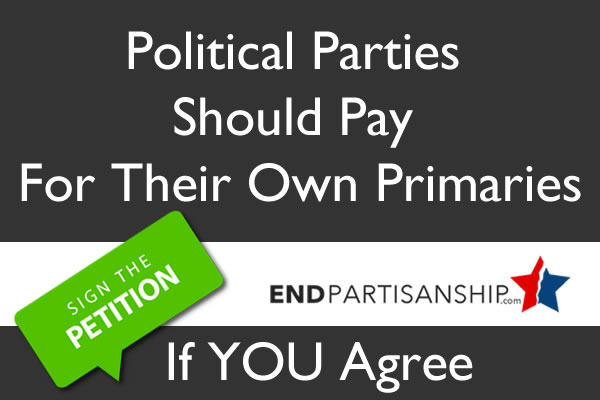Christie Todd Whitman Supports Open Primaries, Inclusive Politics

Vice Presidential candidate, who made a name for herself as an advocate of fiscal conservatism, minus the socially restrictive policies that often accompany monetary responsibility. Her environmentalist tendencies, typically associated with progressives, led to the former Governor becoming Administrator of the Environmental Protection Agency. Continued support for gay rights, and her later involvement in the struggle for marriage equality, were further proof that Governor Whitman didn’t fit the mold of the conventional partisan ideologue.
Her 2004 book, Its My Party Too, warned the Republican Party of the dangers presented by the “social fundamentalists” within their ranks. Governor Whitman argued that allowing the Far-Right to gain too much leverage over the GOP would have disastrous consequences for the party’s sustainability. While such warnings may have seemed implausible during the height of the Bush Administration’s popularity, history has vindicated her fears. Today, the Tea Party enjoys unprecedented power in Washington, a reality that has not only resulted in Congressional gridlock but also great damage to the Republican Party’s standing.
“The Republican Party's approval ratings are in the tank thanks to the Tea Party, which started as very fiscally-focused, but has been co-opted by activists for a variety of social issues,” said Governor Whitman, who knows the complications of ideological clashes firsthand. After-all, her vision of a fiscally conservative, socially inclusive GOP was not in synch with the goals of some within the organization. Indeed, "pro-lifers" and advocates of other socially conservative causes found they had little in common with the Whitman Administration.
During the 1997 gubernatorial election, the ideological chasm between Trenton and the social fundamentalists led to a Rightwing third party challenge in the form of Libertarian Murray Sabrin. Of course, Governor Whitman re-emerged from the three-person contest with almost forty-seven percent of the vote and a second term; however, the fact Sabrin received nearly five percent was indicative of the fact that unwillingness to yield to the base can have consequences at the polls.
Libertarian Murray Sabrin. Of course, Governor Whitman re-emerged from the three-person contest with almost forty-seven percent of the vote and a second term; however, the fact Sabrin received nearly five percent was indicative of the fact that unwillingness to yield to the base can have consequences at the polls.
And therein lies the lesson: politicians who fail to bow to the ideological base are threatened with electoral challenges, be they during the primary or general election. Though such opponents may wear away segments of potential supporters, it is important for politicians to recognize that the costs of catering to the extremes often outweigh the benefits. While Governor Whitman believes moderate and socially liberal Republicans are at risk of being challenged during upcoming elections, she has an encouraging message for them:
“It doesn't mean they can't win,” she said. “That's the thing to remember. You might not win by as much, but you can still win.”
Increasingly intense partisanship, the pull of the polarizing bases, and the threat of primary challenges aren’t strictly problems for the Republicans: “This isn't a uniquely Republican issue,” said Governor Whitman. “Obama is going to have real problems in the next round of budget talks—the more liberal wing of the Democratic Party is concerned he will move too far to the Right.”
What has led to this polarization? Why are politicians so beholden to the extremes of their party, even when it places them at odds with the public as a whole? Governor Whitman believes primary elections often have a negative impact on the political environment. Because only registered party members can participate, and even then, turnout is extremely low (and only the most ideological of the loyalists show up), the candidates who receive the Democratic and Republican nominations are often further to the Left or Right than most of the public.
“I support open primaries, which force candidates to talk to everyone, not just the small minority who vote in primaries,” said Governor Whitman. “The ten percent average primary turnout we have in this country has produced the polarization we are experiencing.”



